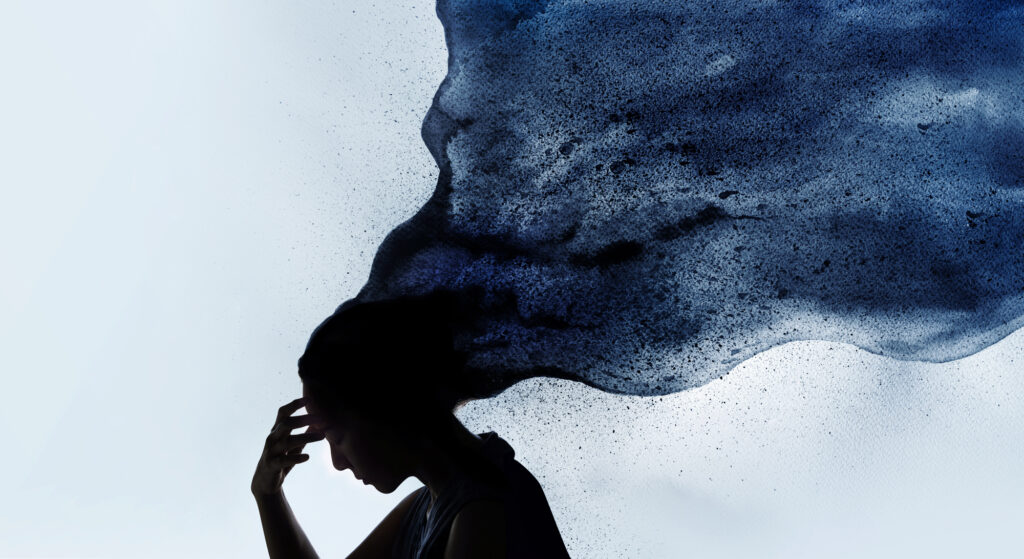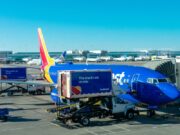
An opinion on mental health in professional aviation
Welcome to the end of 2023 and a discussion revolving around the recent alleged hijacking of Horizon Air Flight 2059, by Alaska Airlines pilot Joseph Emerson, on Sunday, October 23. To be clear, this is an on-going criminal investigation and the accused retains the right of presumptive innocence until proven otherwise. Nevertheless, many of you are already familiar with what is, at this point, incontrovertible; Joseph Emerson boarded Flight 2059, was cleared to occupy the flight-deck jumpseat, pulled the engines’ T-handles during the flight, struggled briefly with the flight-deck crew before being relocated to the cabin, was restrained, and ultimately taken into custody by law enforcement in Portland (KPDX).
With immeasurable gratitude for the immediate and composed response of the flight crew, disaster was categorically averted. Yet a real tragedy remains. Not just the likely ruined life of Joseph Emerson and his family, or the lingering trauma that may haunt some of the passengers and crew members of Flight 2059, but also the very high likelihood that regulators will assign surface causality and hold the pilot responsible, while ignoring the deeper, darker issue of mental health in professional aviation. There is no doubt, in the opinion of this author, that Joseph Emerson should be held accountable for his actions; but that the Federal Aviation Administration should be held culpable for its inaction.
The sad joke of an industry myth is that professional pilots, especially airline pilots, do not suffer from maladies – we are rarely sick, do not struggle with compulsions, addictions, or suffer from stress, depression, or other mental health issues. Occasionally, a pilot might be a little blue about some conflict with a spouse or child, or perhaps struggle a little bit with the death of a parent or loved one, but seven days of bereavement leave and up to five days of family counseling should be more than sufficient to remedy the situation. Yes, this is sarcasm.
The reality is that anything beyond a few days off and a couple of one-off sessions with a therapist are absolutely subject to a clinical diagnosis, revocation of medical certification, job suspension, derailment of career, and the almost guaranteed consequence of increased life disruption, stress, and (surprise!) depression. Yes, okay, the FAA has made some limited strides in finally allowing a pilot diagnosed with mild depression to be awarded a special-issuance medical certificate and return to flying while taking one (and only one) anti-depressant from a very short list of approved medications. This is of course after months, if not years, away from the flight deck while grinding through the special issuance process, not to mention the exorbitant financial burden associated with it. Therefore, and if the general stigma attached to mental health problems were also not enough, it should not be a revelation that the FAA’s antiquated position on threatening rather than assisting, unsurprisingly, drives pilots to mask their suffering, leaving them largely unable to seek safe, effective treatments for the biological conditions and life difficulties that many people must contend with.
Commercial flying is unquestionably a public-trust profession and pilots should be undeniably competent in flying skills and cognitive function. However, other professionals endowed with significant public and individual trust are not effectively barred by the potential of job and career loss as a consequence for seeking qualified assistance and availing themselves of proven medications to manage their conditions in order to remain healthy, safe, capable, and responsible in the workplace.
This brings us directly back to Joseph Emerson. In statements made by Joseph, he indicated that he has struggled with his mental health, and if accurate, was awake for 40+ hours prior to the event on Sunday, October 23, in a state possibly further exacerbated by the effects of psilocybin (“magic mushrooms”). But why would a professional pilot ingest ‘shrooms to begin with? Perhaps the recent attention these have garnered as potentially efficacious in the specialized treatment of certain mental health conditions such as dementia and traumatic stress disorder. And conceivably, that this was the last desperate attempt by a professional aviator to self-medicate in an industry in which disclosing and seeking treatment often does more harm than help.Once the smoke (and thankfully, not from a hole in the ground) clears in this case, perhaps some substantive focus will be placed on improving resources and support, along with meaningful assessments and therapies for pilots and other aviation professionals in need. Hopefully, the worn and tired responses of assigning blame, demanding compliance, and restricting access will not be the continued rule of the day.























































































































